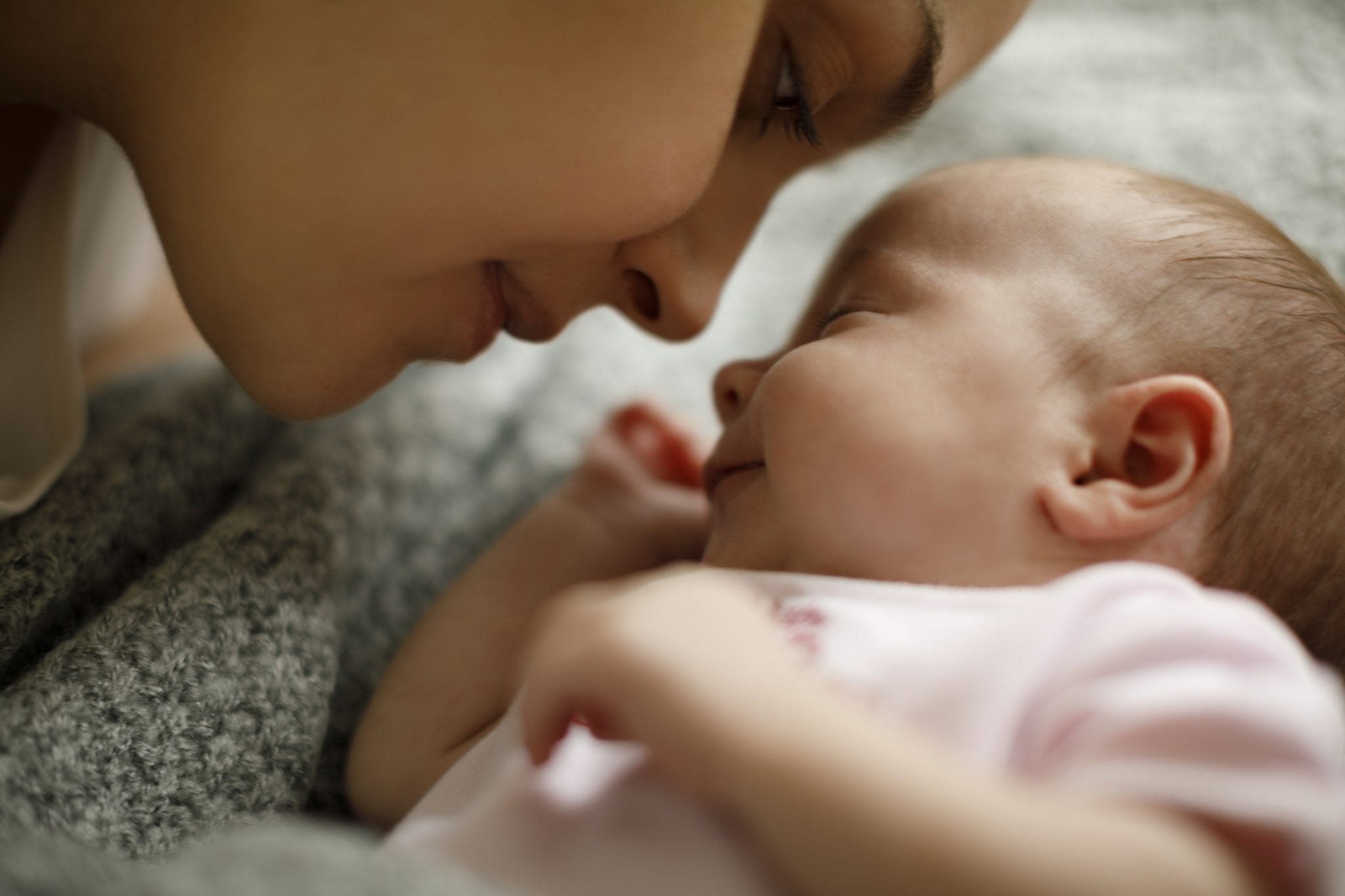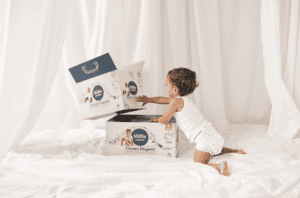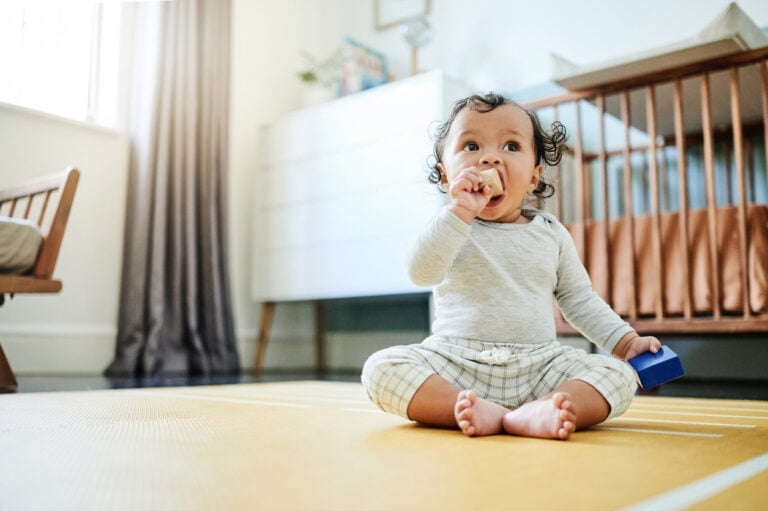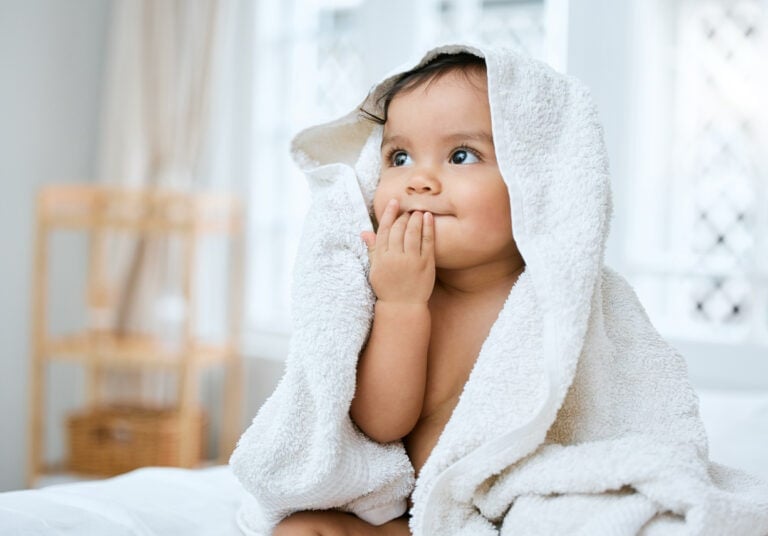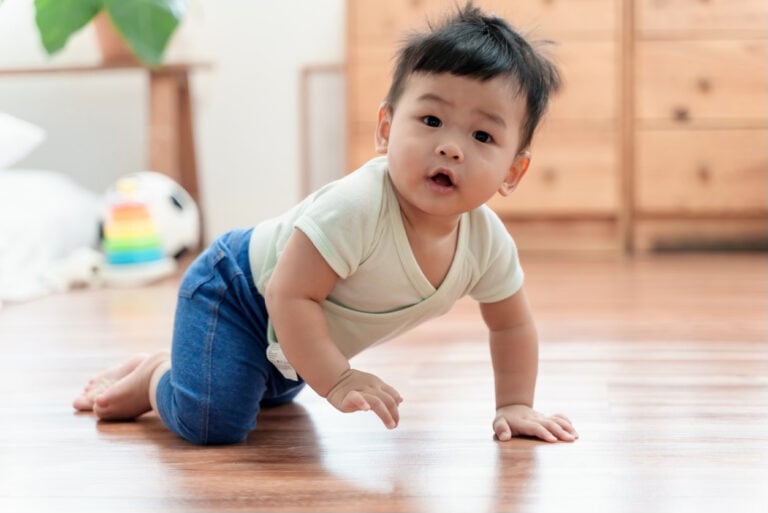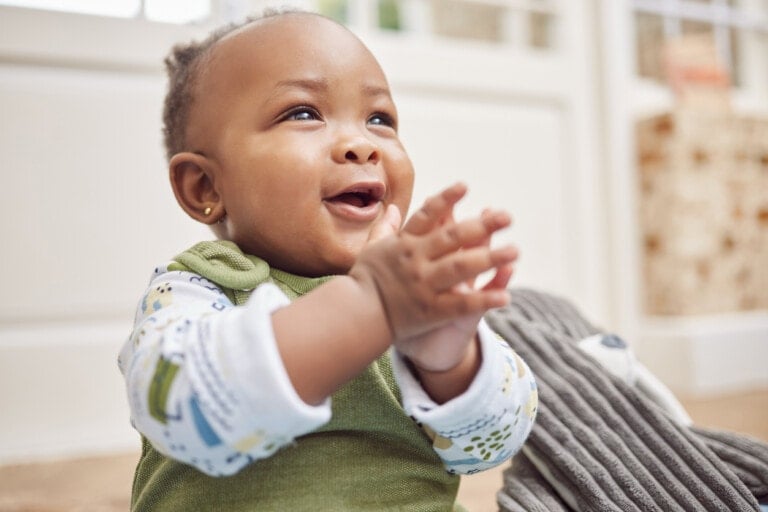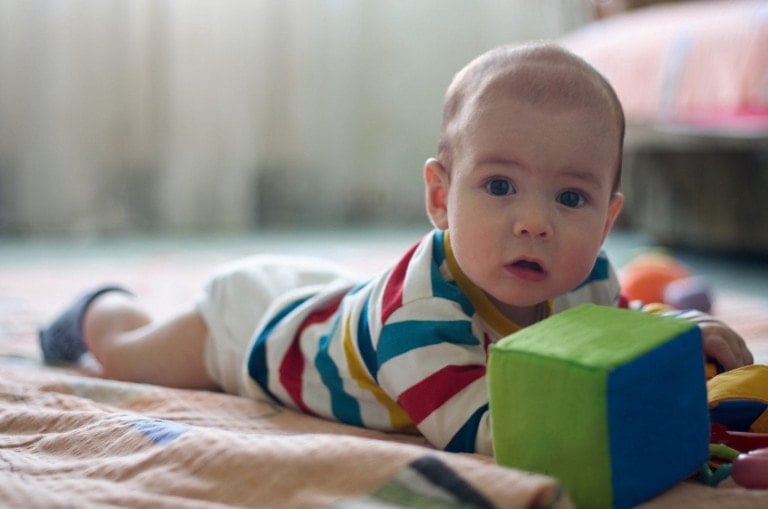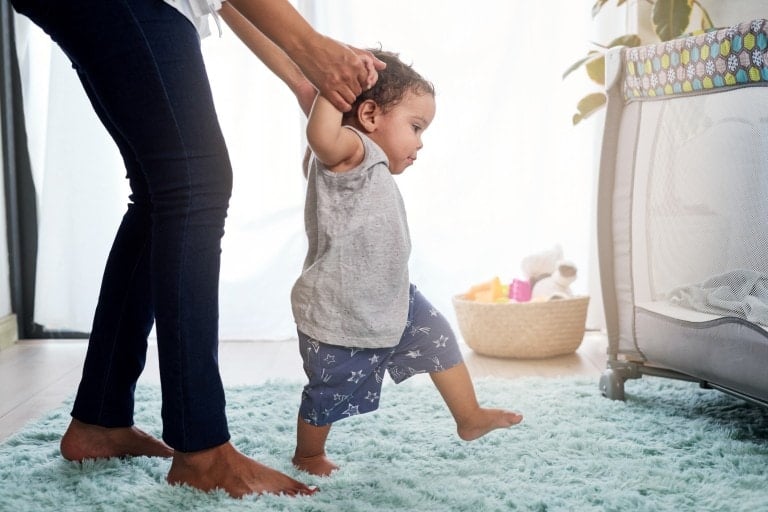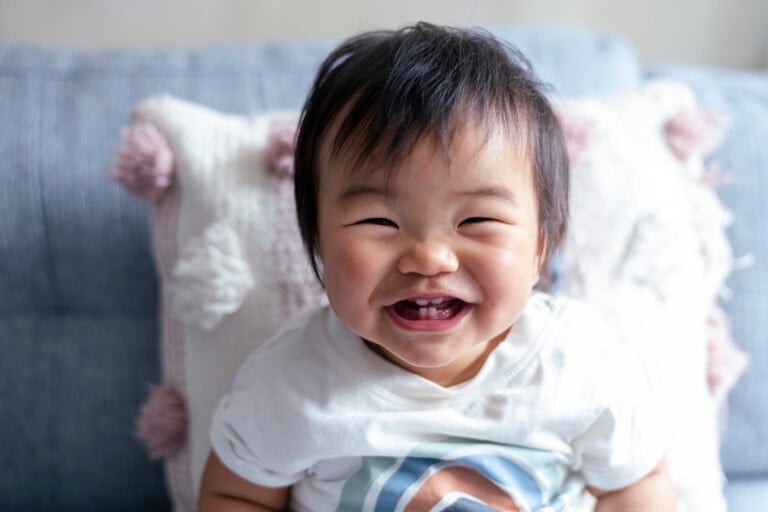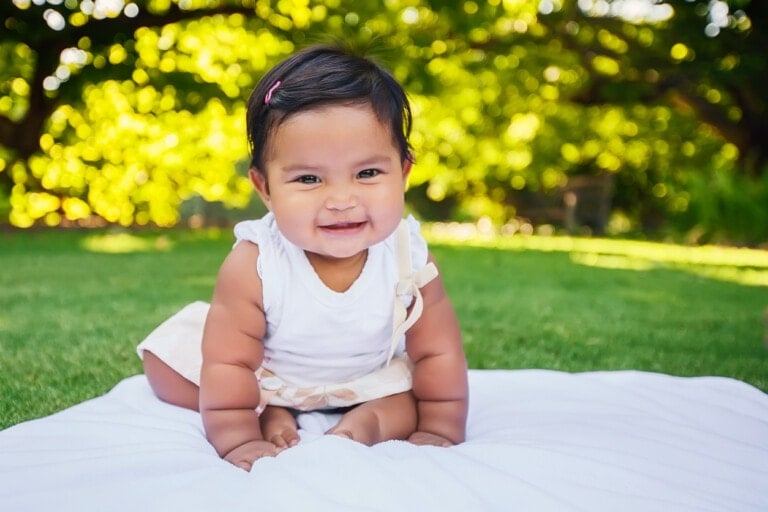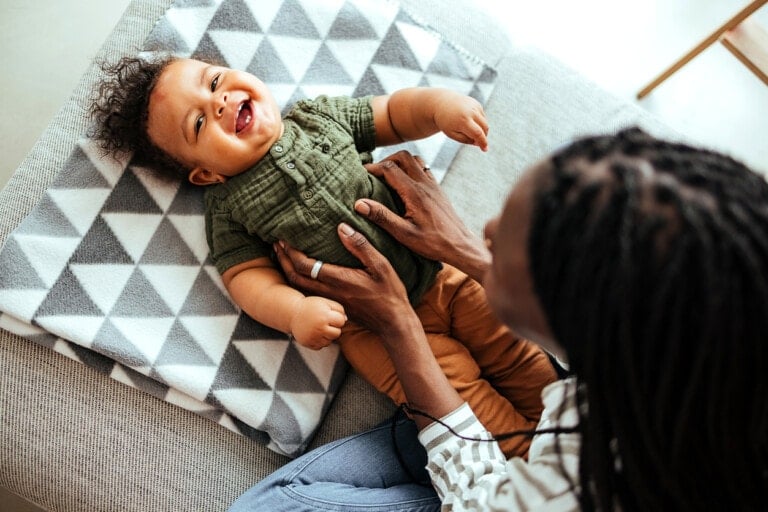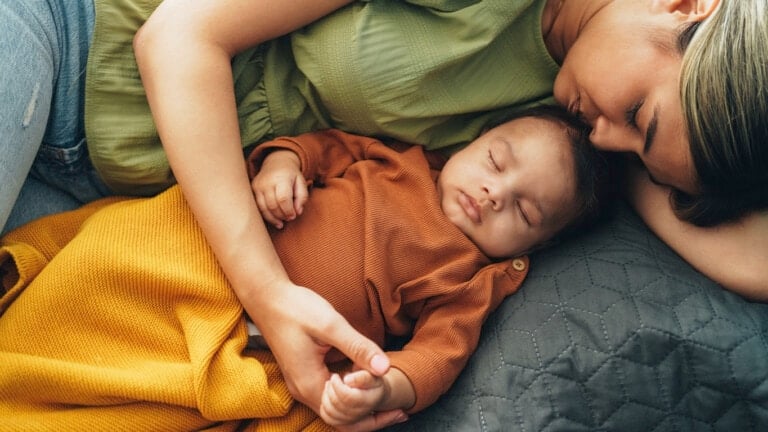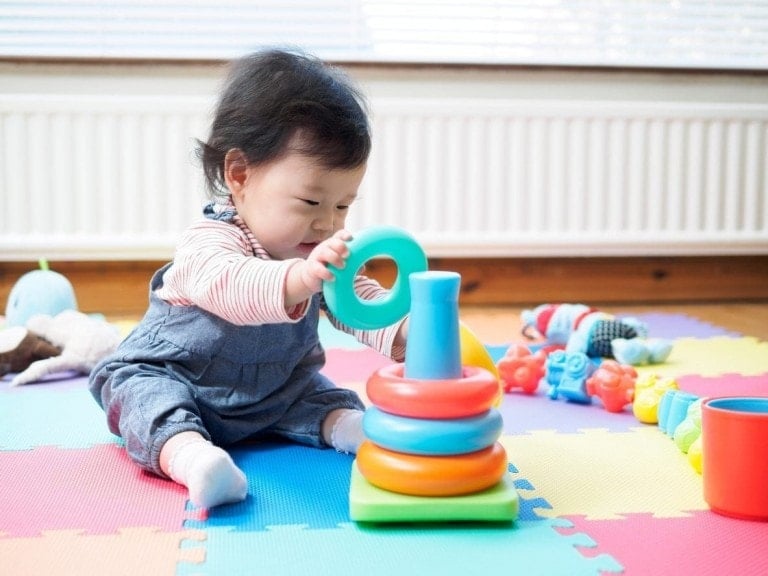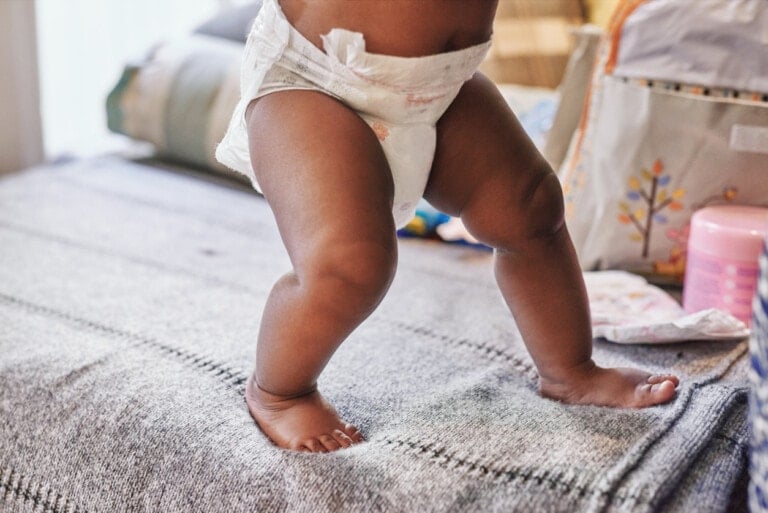Your baby’s first smile is such a heartwarming sight. You spent nine months growing this precious little one and have nourished them day and night since birth and now beyond. Seeing your baby smile at you feels like a personal reward and makes all your caretaking efforts worthwhile. While you may see them smile in their sleep within the initial few hours or days of life, social smiling happens a bit later. If you’re wondering when babies start to smile, read on for more information. And if your baby hasn’t grinned at you yet, you will also find some tips here on encouraging them to do so.
The First Baby Smile is Probably a Reflex
Perhaps you’re unsure if what you’re seeing in your newborn is a true social smile. It’s common for newborns in the first month or two of life to smile in their sleep. During rapid eye movement (REM) sleep, infants are highly active and may almost seem awake. Smiling is common during this REM sleep in the initial few weeks of life. Since these smiles don’t occur during socialization or interaction, they’re considered “spontaneous” or reflexive. They aren’t in response to an outside stimulus. Spontaneous smiles usually disappear once the infant starts social smiling while awake.1
Spontaneous smiles occur primarily in sleep. They can also happen while baby is having a bowel movement or passing gas.2 These reflex smiles often use only one side of the mouth and last for a brief moment.3 Conversely, real or social smiling occurs in response to an external stimulus, such as your voice or eye contact, and engages more of your baby’s face.2
When Do Babies Start Smiling?
The smiling reflex diminishes as babies start social smiling, which usually emerges around 6 weeks of age. Your pediatrician will ask about it at your 2-month visit. By 3 months old, your baby will likely smile regularly and maybe even coo in response to your smiles and other social interactions.4
Around 2 months old, babies vastly improve in their ability to:5
- Control their heads
- Remain alert
- Control the direction of their gaze
- Maintain visual attention and focus
These motor and cognitive improvements make a baby more prone to engaging in social interaction and smiling.5
How To Make a Baby Smile
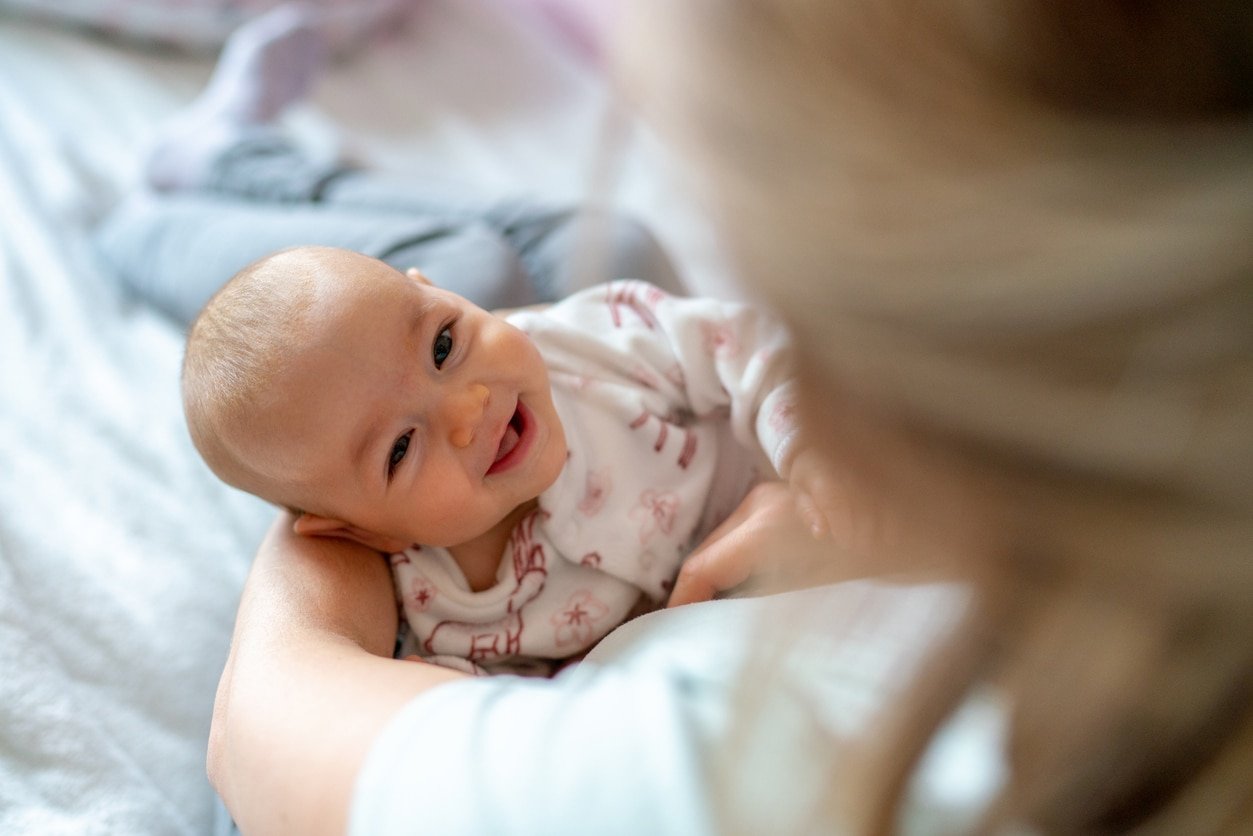
While your baby probably isn’t “delayed” because you haven’t seen them smile yet, you may still be eager to witness a grin. The most important thing you can do to encourage this is to simply interact with them. Multiple studies have shown that face-to-face time with a caregiver is associated with longer and more frequent episodes of smiling.4,6
Sometimes, it can feel silly talking with your baby when it feels like they can’t understand you. But while they may not know what you’re saying, they can read your facial expressions and tone of voice. Here are some ideas for how to interact with your newborn to encourage a smile:
Imitation
Mirror their facial expressions with your own. If they squint, pucker their lips, or furrow their eyebrows, try doing the same. It may feel goofy, but it might make you and your baby smile or laugh!5 Maternal responsiveness is a big predictor of social smiling, and one marker of maternal responsiveness is following your baby’s lead. If they are being interactive, playful, or communicative, then mirror them.7
Affection
It’s called a “social smile” for a reason! Babies are most likely to do it when they feel connected to you in a social way. Give them hugs, kisses, cuddles, gentle tickles, and blow raspberries to show them love and elicit a smile.2
Vocalization
Talk to your baby about anything — narrate your day, what you’re doing, and what they’re doing. Sing, talk in a high-pitched voice, and praise your baby.2 Comment on their facial expressions. Not only does this encourage interaction between you and your baby and increase the odds of a smile, but it also builds their vocabulary and helps with the development of their speech and social skills!5
Gazing
Make frequent and prolonged eye contact with your baby. This little person loves you and wants only to be loved by you. Nothing makes me feel more loved than feeling seen, and looking at your baby may cause these same feelings of love and affection. This just might spark a smile!5
Play
Surprise your baby! Games with a surprise element like peek-a-boo may cause a positive startle that can provoke a smile. Show them rattles, stuffed animals, high-contrast images, and other toys that will encourage them to get excited, interact, and maybe even smile.2
What If My Baby Isn’t Smiling Yet?
If your baby is in the 4–12-week age range and you have not seen a smile yet, there’s probably nothing to worry about. Babies, like adults, have different personalities and will smile when the time is right and with the right trigger or stimulus. If they reach 3 months of age and still aren’t smiling, vocalizing, or communicating with you in any way, you should reach out to your pediatrician.2 If you’re concerned about any developmental milestone at any time, you can always reach out to your pediatrician or bring it up at your next appointment.

Do Autistic Babies Smile?
If you’re consistently interactive and responsive with your baby and they’re still not smiling, you may start to worry about what could be wrong. Many parents think autism might be causing a delayed social smile from their little ones. Babies with autism do smile, but they may do so less and have a harder time smiling at others.7 Autism may affect their ability to integrate the two behaviors of smiling and making eye contact at the same time.8
Again, if you have concerns about your child’s behavior, milestones, or socialization, it’s always worth bringing them up to your provider. However, if your baby is not social smiling right at 6 weeks old, don’t jump to the conclusion that they’re autistic. The American Academy of Pediatrics doesn’t recommend the first autism screening until 9 months.9 Keep interacting with your baby; if they still don’t start smiling, contact your pediatrician for additional evaluation and reassurance.
Your baby’s first smile is just the start of their social interactions. Once they master it, they will keep doing it more and more frequently. Before you know it, they will be laughing and cooing, too.2 Connecting with your baby with a smile is a fun and meaningful way to strengthen your bond. We can’t wait for you to experience it!













